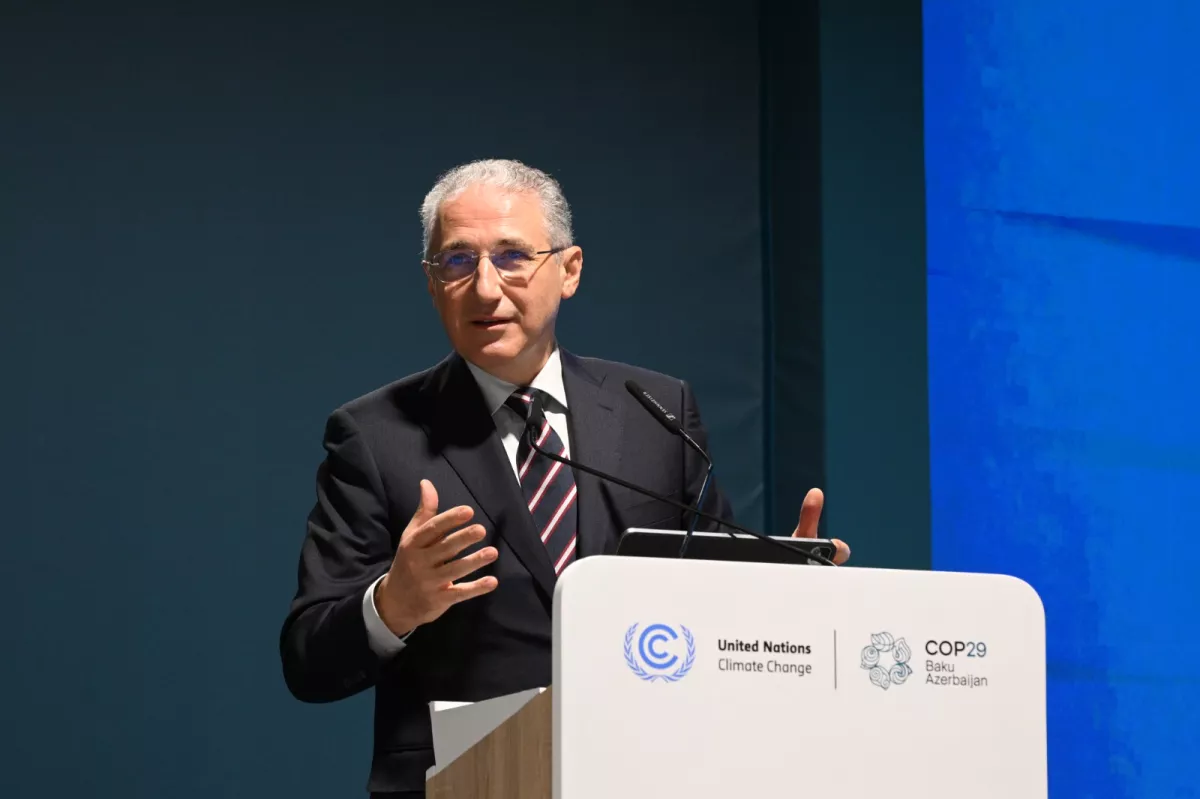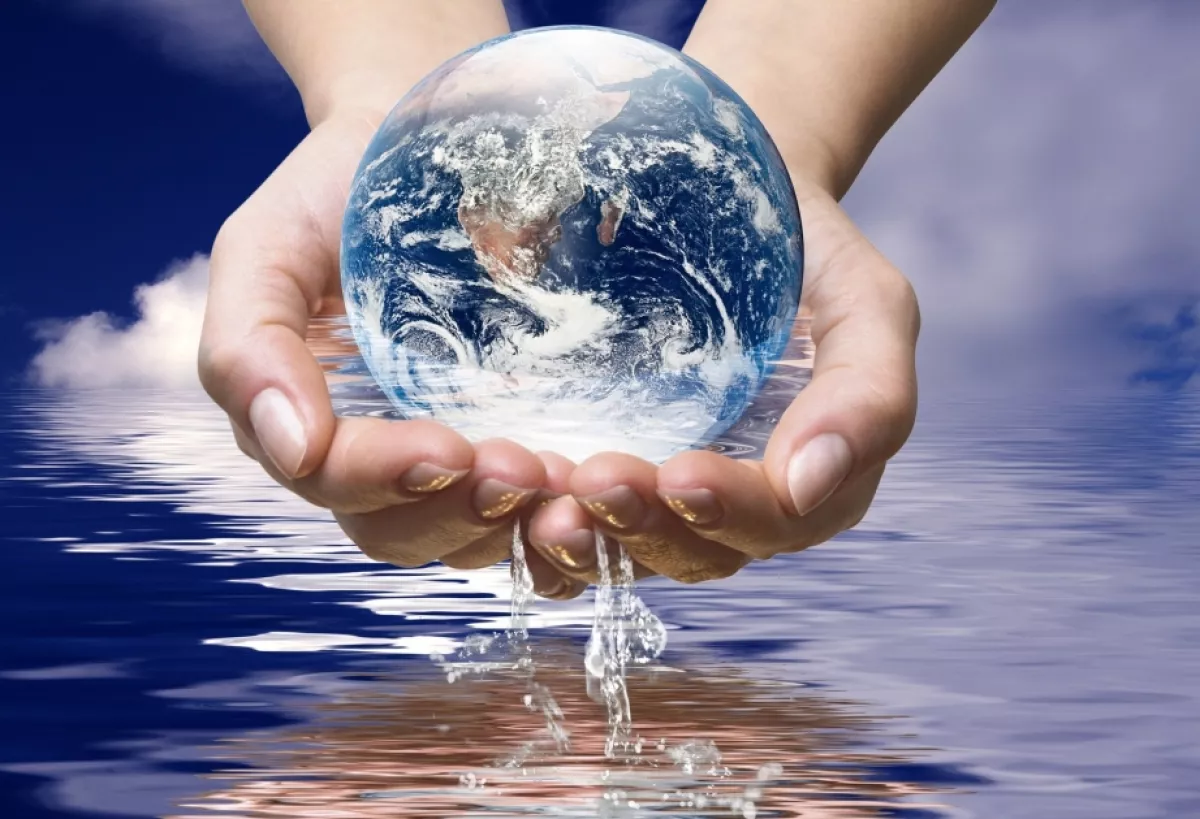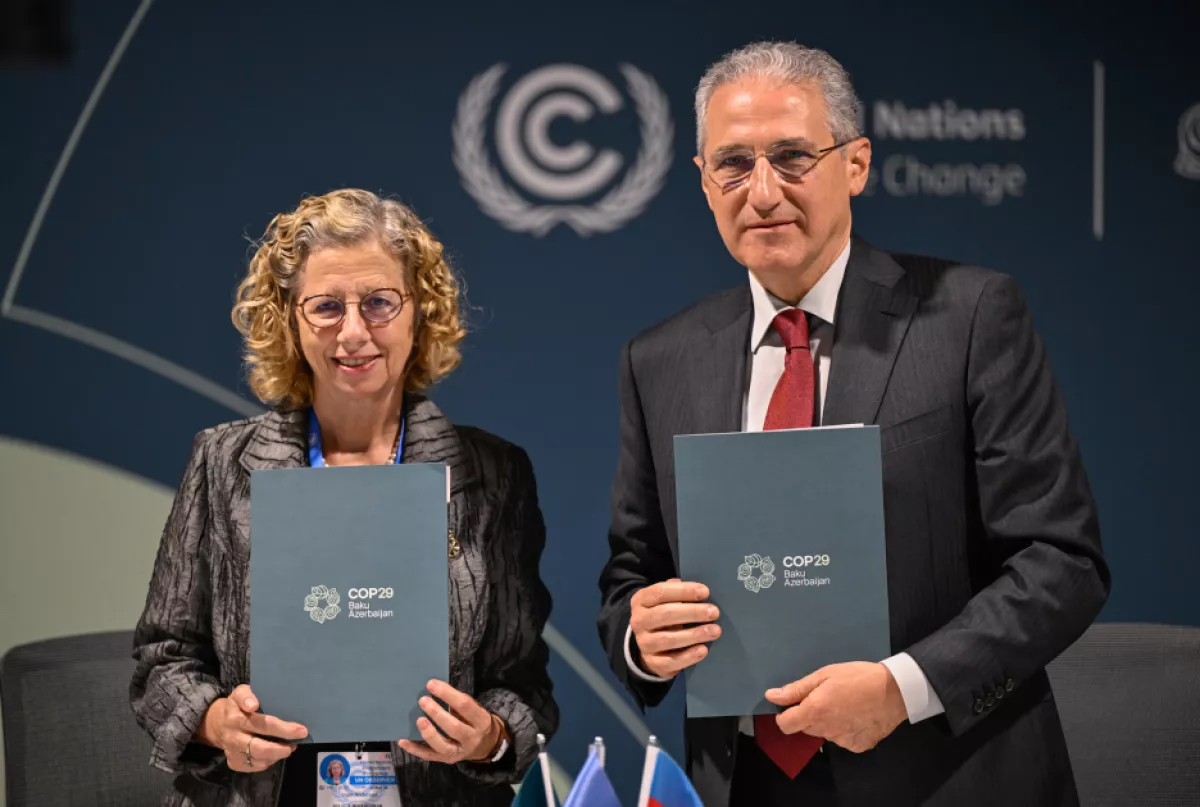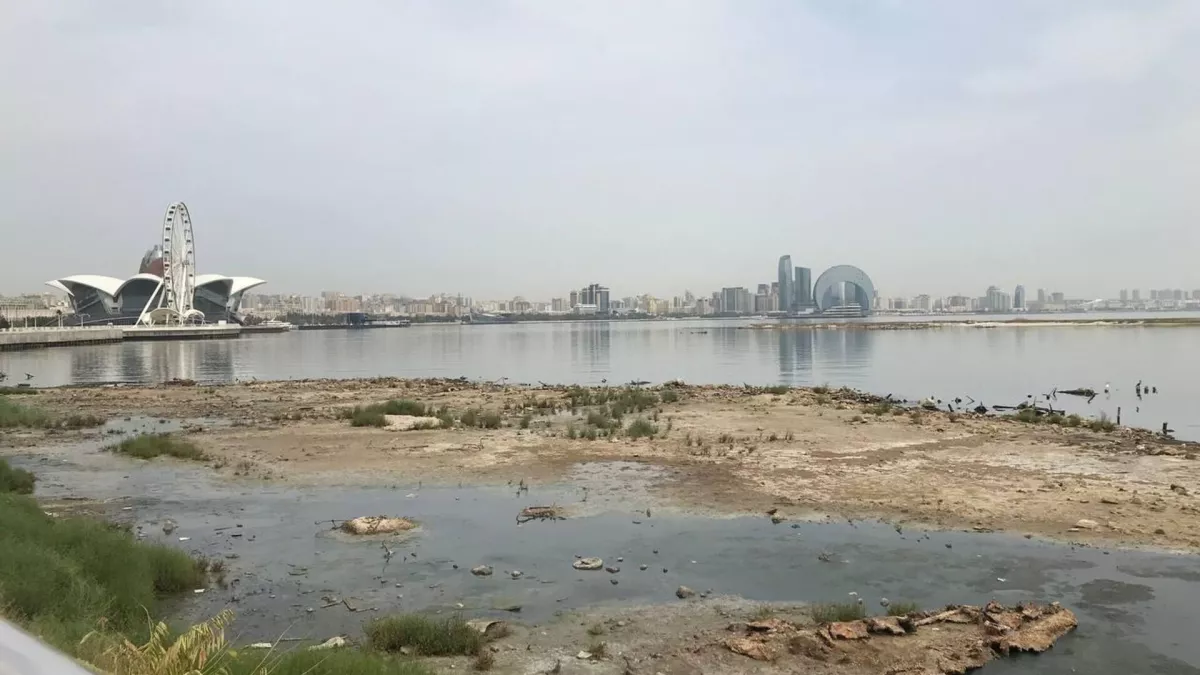COP29: Water takes centre stage in global climate action Tackling urgent crisis
Climate change is affecting all countries across all continents, leading to a reduction in biodiversity, pollution of the atmosphere and soil, and desertification. The most severe consequences are related to freshwater shortages and the rapid drying up of natural water bodies.
In recent years, these global challenges have become increasingly relevant in Azerbaijan, where there is a noticeable decline in river levels, including transboundary rivers, and the Caspian Sea is also shrinking. Addressing these issues requires collective efforts, and such steps have been taken within the framework of COP29. During the event, the Baku Dialogue on Water for Climate Action was held, and as a result, the Declaration on Climate Actions for Water Resources was adopted.
In the last decade, humanity has faced the acute problem of dwindling freshwater supplies: according to UNESCO, currently, only three to four per cent of the world's water resources can be used as drinking water, and these reserves are depleting. As a result, more than two billion people worldwide—over a quarter of the planet's population—lack access to clean water resources. According to recent research from the World Resources Institute, Azerbaijan ranks 59th among 164 countries that will face water resource shortages by 2050. Additionally, the country falls into the category of nations with a moderately high-risk level—about 20-40 per cent water deficit.
According to Azerbaijan's National Report submitted to the UN Framework Convention on Climate Change, it is predicted that the volume of Azerbaijan's water resources (including transboundary water resources) will decrease by 5-10% by 2040 and by 10-15% by 2070. To minimize these risks, Azerbaijan's President Ilham Aliyev approved the "National Strategy for the Efficient Use of Water Resources" in October 2024. The document presents a comprehensive plan for implementing priority measures through 2040.
"Climate change exacerbates water-related problems worldwide by altering the main parameters of the global hydrological cycle," said Azerbaijan's Minister of Ecology and Natural Resources and COP29 President Mukhtar Babayev at the high-level event Water as a Lifeline for Climate, Nature, and People. "In Azerbaijan, these impacts manifest in serious problems such as the decline of the Caspian Sea level and the degradation of biodiversity. This alarming trend is observed not only in our country but also in inland water basins worldwide."
Babayev added that water plays a crucial role in achieving the United Nations Sustainable Development Goals (SDGs), such as poverty reduction, food security, and biodiversity preservation. In this context, the COP29 presidency has identified the protection of water resources as one of the key priorities in the fight against climate change.

Water plays a crucial role in addressing climate issues, but despite this, the water problem has remained outside the scope of global climate discussions for many years. The complexity of this issue was highlighted by Inger Andersen, Executive Director of the United Nations Environment Programme (UNEP): "Nearly 3 billion people worldwide suffer from a lack of clean freshwater, and the water resource deficit causes numerous problems. Therefore, we must take action, and water must become an integral part of climate efforts. The harsh truth is that many of the commitments are not being met, neither in terms of financing, nor in terms of actions or comprehensive approaches."
This is why the Baku Water Dialogue is so important, according to the representative of the relevant UN body. "We need to move much faster and shift from a sectoral approach to a broader economic perspective, revisiting urban water infrastructure, agriculture, water usage and storage mechanisms, as well as natural reservoirs," she said.
The UNEP Director also emphasized that ensuring the long-term sustainability of water resources requires effective management of water quality and the implementation of policies that consider the intersection of environmental and climate issues.
Inger Andersen believes that a fundamental shift has occurred in these matters: "At the sixth UN Environment Assembly held in February 2024, a resolution was adopted aimed at strengthening water policy and enhancing initiatives for water resource management. Of the 119 countries that submitted their national biodiversity targets, more than 90% included key components directly related to water issues."

The messages conveyed during COP29 have elevated the water issue to a priority in the UN climate agenda, serving as the foundation for formulating the principles of the first Declaration on Water Resource Management. On this positive note, UNEP Executive Director Inger Andersen and Minister of Ecology Mukhtar Babayev signed a Memorandum of Understanding under the Baku Dialogue initiative, Water for Climate Action. It was noted that the memorandum will facilitate the implementation of future activities within the initiative and lead to an expansion of partnerships under the Water Declaration. Overall, the new initiative fully aligns with the position on water issues expressed by Azerbaijan, along with several other countries and international organizations.

Germany's Minister of Environment, Steffi Lemke, stated that the Baku Water Dialogue will provide an important platform for discussing water issues, and Germany sees itself as an active participant in the water dialogue: "Water is a key sector for adaptation. It is essential for the global goal of adaptation. Water policies should be systematically integrated into national adaptation plans. We can learn a lot from each other in water management."
The UK’s Deputy Minister of Environment, Mary Creagh, expressed a similar position, noting that the UK supports the Baku Water Declaration signed at COP29. The minister reminded that the UK had organized the first water pavilion at the COP26 conference to highlight the importance of this issue within the climate discussions. Since then, attention to water issues has been increasing, and this continues in Baku, where London unequivocally supports the COP29 water declaration.

Furthermore, the Baku Water Declaration, adopted under COP29, also addressed the issue of the Caspian Sea's declining water level. In recent years, this water body has been rapidly shrinking due to increased evaporation and the failure of water to return naturally through precipitation and river runoff. The Caspian Sea's water level has been dropping by an average of 20 cm per year, and over the past two decades, the surface area has decreased by more than 23,000 square kilometres.
In addition to the natural cyclicality of the Caspian Sea—periodic rises and falls in water levels—anthropogenic and technogenic factors also play a role. The main factor is the regulation of the Volga River (which accounts for about 85% of the water runoff into the sea) through hydraulic structures. Nine major reservoirs have been constructed on this river, used for water extraction for agricultural purposes and water supply. Droughts in recent decades have significantly increased water extraction, leading to a 25-30% reduction in water flow into the Caspian Sea. Similar processes have been observed in two other key rivers of the Caspian Basin— the Ural and Kura.
"As you know, the level of the Caspian Sea is declining, and after Azerbaijan was elected as the chair of COP29, we introduced the issue of the Caspian Sea on this climate platform in order to find mutually acceptable solutions to address this complex situation," noted Kamala Huseynli-Abishova, representative of the Water Center and COP29 Presidency’s Agenda for Action, speaking at the high-level roundtable Water for Climate: Integrating Water Solutions.








